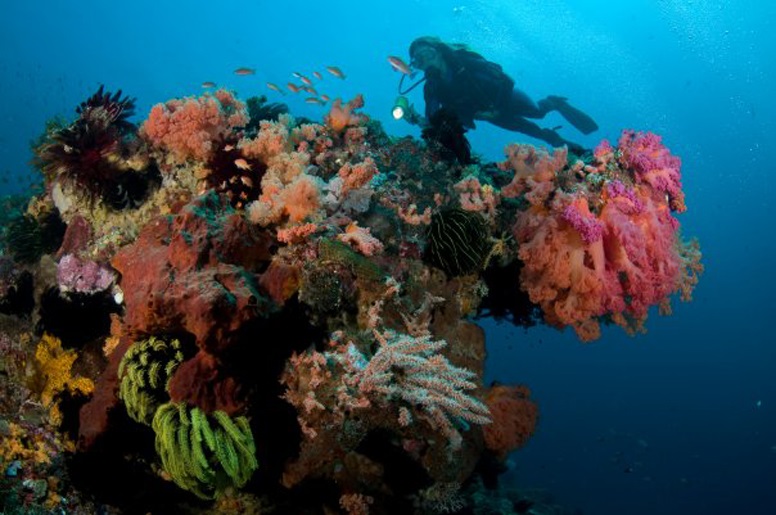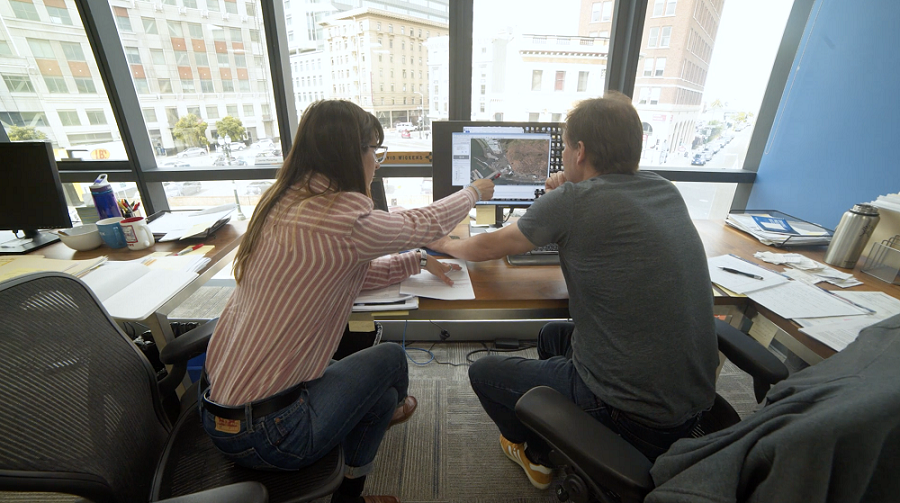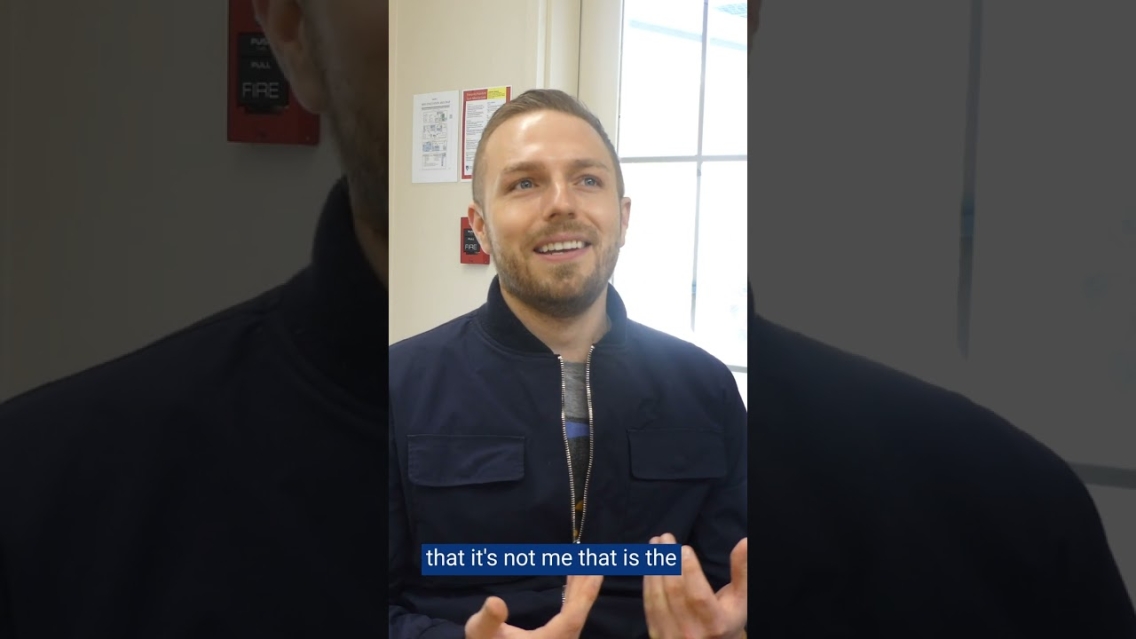Program Details: Environmental Policy and Management
Customize your master’s degree based on your interests and career goals.
Why the Institute: Professional experience before you graduate
My name is Melis Okter, I was an International Environmental Policy student at the Middlebury Institute. I am currently an environmental scientist and coastal planner at Dudek, in their Oakland office, and what I mainly focus on is sea level rise policy.
I was studying science-based stuff in my undergrad and I had this moment when I felt like there was a lot of science going on but there wasn’t so much of the implementation. So I took a shift from looking at science-based PhD programs to more practical masters or PhD programs and I came across the Middlebury Institute and the IEP program had a really good intersect of science and policy.
That was the best part of it because if you don’t have a lot of job experience, you can focus on what you did in your class; not what you learned, but how you implemented what you were learning. Several of our classes, we had to write vulnerability assessment, or go out and do some sort of fieldwork that we translate into a policy. And those were directly applicable tools that I was able to show people while I was applying to jobs: “Hey look, I’m on the younger end of the spectrum. I don’t have a whole lot of job experience, but this is how I know how to do a lot of this stuff.”
I don’t think there’s any contaminated sites, but I just wanted to make sure there’s someone confirming that.
The Middlebury Institute offers you a lot of flexibility to form what you’re most interested in and we have access to some great positions around Monterey. We have NOAA right by us, the Monterey Bay Aquarium, the Big Sur Land Trust and they all know our professors really well. So our professors are always looking to get their students these great positions and they get to know what you’re interested in to give you job opportunities while you’re there.
I think I valued most just how much the faculty cares about their students and really wants to see them succeed. Jason Scorse, the director of the IEP program actually sent me this job position. So I think a lot of them are really invested in their students post-graduation. In my undergrad, I went to UC San Diego, so it’s huge, and I don’t think I had a single professor that I interfaced with very often. So coming from a big school, I think the small campus in a small town with a really small program was really beneficial.
Domestic and International Policy
The program is international because there is no way to solve the world’s greatest sustainability challenges through the actions of one country alone. Furthermore, cultural and historical context matters when crafting policies. Our curriculum focuses 50% on the policies of the U.S. and California and 50% on the international context, ensuring that our graduates understand U.S. policy as well as key international institutions, treaties, and case studies.
Focus Your Coursework
You can choose to focus your coursework on the following specialized areas:
-
Sustainability Management: develop business solutions to global sustainability problems
-
Natural Resource Policy and Management: protect biodiversity and minimize the environmental impact of organizations
-
Ocean and Coastal Resource Management: integrate marine science with economics to promote ocean and coastal sustainability
Practicum Options
The sustainability field is highly dynamic, and today’s employers want candidates with practical, hands-on experience.
Our career-oriented coursework culminates in a professional practicum that allows you to apply your skills to real-world projects with the top environmental organizations and build critical skills so that you graduate prepared to advance quickly in the workforce.
Your final semester practicum can be completed remotely allowing you to transition to your preferred location before you graduate and gain professional experience in a context that closely aligns with your career goals. Learn more.

(Credit: Sterling Zumbrunn, Conservation International )
Language Study and Intercultural Competence
Bridging cultural and linguistic barriers is key to a successful career in sustainability. Therefore, you will take several content-based courses in a second language and/or courses in intercultural competence (ICC).
- In language classes, you will build specialized environmental vocabulary and content knowledge, and develop your skills through presentations and professional writing.
- ICC courses will teach you about managing global and cross-cultural teams, learning how to address issues of power and identity, and improving communications.
We will work with you to align your courses with your evolving career goals.
Accelerated Entry and Advanced Entry
If you have relevant academic or professional experience, you may be eligible to complete the program in two or three semesters. Review the admission requirements.
Joint BA/MA
Earn a Bachelor of Arts and a Master of Arts from the Middlebury Institute in just three years through this transfer program. Learn more.
Peace Corps Connections
- Returned Peace Corps Volunteers (RPCVs) are encouraged to apply for the Paul D. Coverdell Fellows Program, earning a guaranteed scholarship.
- You can integrate Peace Corps service into your degree through our Options for Peace Corps Service, earning yourself a 50 percent tuition scholarship for your final semester.
STEM Designation
Our MA in Environmental Policy and Management program is designated as a STEM (Science, Technology, Engineering and Mathematics) degree program.
- U.S. citizens and permanent residents can take advantage of a number of scholarships only available for STEM-designated degrees.
- International students who graduate from this program, and who are eligible to apply for standard Optional Practical Training (OPT), may also qualify to apply for a STEM 24-month extension of their work authorization. Please visit International Student and Scholar Services (ISSS) to read more about eligibility requirements for Optional Practical Training (OPT) and the 24-month STEM extension.
The Monterey Advantage
The Middlebury Institute’s Monterey campus is an ideal location. The city of Monterey is a center for marine and ocean conservation and policy, featuring premier resources such as the Monterey Bay Aquarium and the Monterey Bay National Marine Sanctuary. More than 150 environmental organizations have offices in the Monterey Bay area.
Nearby Silicon Valley is at the heart of the green tech revolution, and the organic agriculture movement started just on the other side of the bay in Santa Cruz. Local conservation leaders like the Big Sur Land Trust and the Ventana Wildlife Society have helped define conservation policy for decades. Just two hours away from Monterey, the San Francisco Bay Area has the highest concentration of environmental NGOs anywhere in the world.
Online MPA in Sustainability
Build your expertise in designing, implementing, and managing sustainable solutions for governments, nonprofits, and businesses in this 100% online, asynchronous, 20 months, part-time. Learn more.
Learn from the Experts
Watch recordings of online discussions with Middlebury Institute experts on a wide range of sustainability topics.


